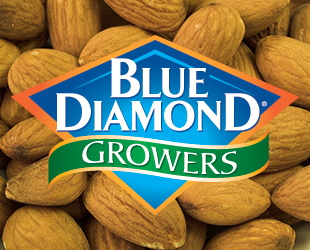
Oct 20, 2022Blue Diamond among USDA climate-smart recipients in California
California agricultural entities are among recipients of a federal grant program intended to increase market opportunities for U.S. commodities produced using climate-smart production practices.
Seventy projects — including 20 from California — received grant funds through Partnerships for Climate-Smart Commodities under a first pool of $2.8 billion in funding from the U.S. Department of Agriculture. The grants support efforts such as manure management to reduce methane emissions, regenerative practices in almonds, and collecting data to develop a national soil inventory. Projects from the second funding pool will be announced later this year.
The goal of the program is to reach more than 50,000 U.S. farms and encompass up to 25 million acres of working lands to sequester more than 50 million metric tons of carbon dioxide over the lives of the projects.
Grant recipients from California discussed details of individual climate-smart projects during a meeting of the California State Board of Food and Agriculture.
Denise Mullinax, executive director of the California Dairy Research Foundation, presented information about a project that provides financial incentives to dairy producers who adopt manure management practices to reduce methane emissions.
“Eighty-five percent of the $85 million will go direct to dairy producers for the implementation of those practices,” Mullinax said. “We’re going to target greater than 50 dairies. The way we structure the grant to enable us to do that is provide up to $1,000 per cow with a maximum of $1.5 million per dairy facility.”
Mullinax said that there is the potential of match funds through the California Department of Food and Agriculture Alternative Manure Management Program. “For a single project, a single dairy project could receive up to $2.25 million for the implementation of these practices,” she said.
The project, Partnering to Invest in Building Markets for California’s Climate-Smart Dairy Producers, has four components. They include implementation of climate-smart practices, on-farm research, outreach and education and development of climate-smart product markets.
Grower-owned cooperative Blue Diamond Growers received a $45 million grant to incentivize growers to adopt climate-smart and regenerative practices, which will lead to verified claims, business-to-business reporting and greenhouse gas quantification.
“We’re thrilled to have this opportunity. The almond industry is well poised to advance climate-smart practices,” said Alicia Rockwell, Blue Diamond Growers director of government and policy affairs.
The $45 million grant awarded to Blue Diamond is over a five-year period starting in October. Climate-smart practices that qualify for funding help sequester carbon and attract pollinators include cover cropping between orchard rows, conservation planting outside of the orchard, hedgerows and whole-orchard recycling. Whole-orchard recycling involves chipping the orchard when it is at the end of its lifespan, and the material is plowed into the soil to sequester carbon.
“We do have many domestic and international customers now specifically asking us for climate-smart activities that they can utilize in their supply chains, so this is a perfect opportunity for us to take these practices, identify what they’re doing on farms and connect them to both domestic and international markets,” said Dan Sonke, Blue Diamond Growers director of sustainability.
Grant funds of $20 million awarded to Elevated Foods benefit urban farmers in Orange County and across the U.S. to meet needs of small and underserved producers of fresh fruit and vegetables. Partners propose to implement practices on hundreds of thousands of acres planted to fruit and vegetables in key U.S. growing regions.
“The thing that really excites us is, as we know, this grant program is spread out across all of agriculture,” said Steve Brazeel, co-founder and president of Elevated Foods. “We were obviously concerned that specialty crops wouldn’t have as much sway as some of the bigger commodities.”
Brazeel explained that Elevated Foods plans to use climate-smart practices and technologies that have been adopted by commercial farmers and utilize those on small farms throughout the U.S.
“We’ll be able to spread these practices throughout the U.S. and really incentivize these farmers and help them establish these systems,” Brazeel said. “We’ve been really excited to get to work. This is just a great example of how government and private industry can work together to solve problems.”
The Meridian Institute was awarded a $20 million grant for the Soil Inventory Project, which uses soil carbon data to understand greenhouse gas dynamics and predict agricultural climate mitigation, resilience and yield. The project is a producer-driven, public data collection campaign in which the grant funds target farms that produce value-added and direct-to-consumer specialty crops and row crops.
Kris Covey, co-founder and president of The Soil Inventory Project, said growers are adopting practices that lead to better water quality and improved crop yields. He added, “But as a scientist, I’m looking for data to back it up.”
“We see the fundamental challenge as measuring soil carbon at low cost at field scale and then aggregating those data at large scale, so we’re taking a multi-pronged approach to the soil carbon measurement challenge, and we’re partnering with leaders in agriculture to collect and unify existing data sets,” Covey said.
USDA said it anticipates investing more than $3 billion in pilot projects, which can create market opportunities for American commodities produced using climate-smart production practices. Information is available at https://usda.gov/climate-solutions/climate-smart-commodities.
– Christine Souza, California Farm Bureau Federation









